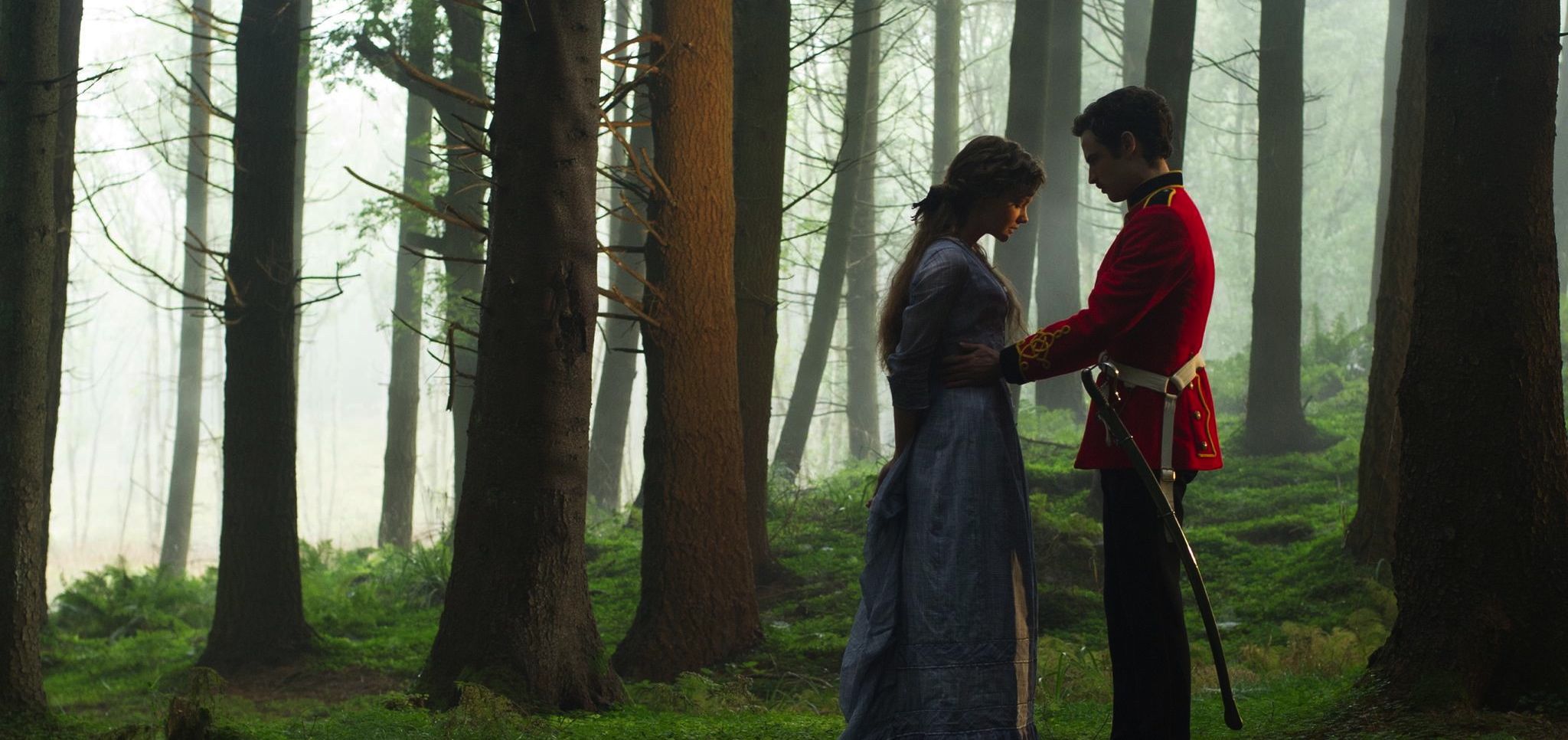
Thomas Vinterberg’s Far From the Madding Crowd in some ways is an easy film to recommend, and will likely find its audience on both sides of the bridge during the Festival. It’s handsomely shot, capturing the idyllic English countryside to its best advantage, and with some visually dazzling set pieces through its overarching aesthetic that couldn’t be further away from Vinterberg’s earlier Dogme 95 associations (despite a hand-held shot here or there in characters’ freer moments). Its other chief attribute, and perhaps its strongest card, is Carey Mulligan’s terrific central performance, a headstrong woman both charming and proud, and not without flaws. Mulligan has built up an impressive resume in recent years, with memorable supporting turns in such films as Shame, Drive, Inside Llewyn Davis and The Great Gatsby, and here proves herself a more than capable leading player, handling the lead role with aplomb. Unfortunately the film around her doesn’t quite live up to the same standards, an enjoyable but ultimately unsure production that feels rushed and uneven.
Adapted from Thomas Hardy’s fourth novel, at the start of Far From The Madding Crowd we are introduced to Bathsheba Everdene (Mulligan) a woman who has come to be in charge of her father’s estate, and Gabriel Oak (Matthias Schoenerts, Rust and Bone) a proud farmer who immediately proposes marriage to Ms Everdene. He is rebuffed, however, with Ms Everdene simply having no interest in the concept, valuing her own autonomy too highly. Thrown into poverty after a freak accident leading to the loss of his entire flock of sheep, Oak works as a farmhand at various estates, coming into Ms Everdene’s employ down the track after saving part of her farm during a fire. They get along well, though the proud Oak promised to not propose marriage again after begin turned down. In the mean time, Ms Everdene finds herself facing the attentions of her neighbour, the prosperous yet lonely Mr Boldwood (Michael Sheen) after a sending him a love note as a gag, and handsome soldier Sergeant Troy (Tom Sturridge), himself heartbroken after a miscommunication with his fiancé Fanny Robin (Juno Temple) left him standing at the altar some time earlier. As these characters’ fates and loves become intertwined, the title assumed an ironic quality – far from the ‘madding crowd’ of the city, we see characters still at the mercy of other people’s folly, selfishness and stubbornness; in this instance, if two is company, three (and four and five) is definitely that ‘crowd’.
Being unfamiliar with the source novel, it’s difficult to precisely point where some of the issues in the narrative come from. However, as the original novel was near 500 pages long, in serial form, they would appear to be casualties of the adaptation process – pared down to a shade under 2 hours, the film feels often rushed and almost eager to get to the ‘good bits’, like an extended ‘Previously On’ prologue to a long miniseries rather than a satisfying narrative from start to finish. A third hour could just have provided that extra breathing space that would give such an epic tale the feel and gravitas it aims for. Its temporal continuity is often confusing, what we perceive as days is often told to us in dialogue as months or years without any real temporal markers. This snappy progression also turns characters into mostly functional pieces, especially around the uneasy structure of the film, never really deciding whether it’s Ms Everdene’s story or an ensemble piece around her. And considering character is so central to the strength of these intrapersonal period pieces, that’s where the compromise is most felt. Matthias Schoenerts, ostensibly the leading man with a magnetism and charisma that should bode well for future English-language productions, suffers in particular. Disappearing for long stretches at a time until his presence is explicitly needed for progressing the plot, often over many months with no change in his basic character motivations, undermines his crucial role as he is seen essentially hanging around with no agency until Ms Everdene decides to romantically pursue him. The irony of this is not lost on this reviewer, that thousands of female love interests have been similarly underwritten through film history, but it’s the type of flaw that sinks romantic dramas, regardless of gender.
The rushed feel also undermines Mulligan’s good work – setting up her character of a headstrong, independent woman – that when she does fall head over heels with the devilish Troy it comes across not so much as a complication or extension of her character, but a negation of such. Likewise with Mr Boltwood and his immediate attraction to Ms Everdene, love and passion in this film feels less like organic, spontaneous and growing sensations than flicks of a light-switch in the condensed story. Period dramas have always provided some of cinema’s strongest and most multi-faceted female protagonists, in any number of Austen adaptations or the antebellum sagas like Jezebel and Gone With The Wind. Mulligan is more than up to the task and captivates when on screen, and the male leads impress as well. But despite its visual elegance and beauty, Far From the Madding Crowd doesn’t quite elicit its intended effect.
